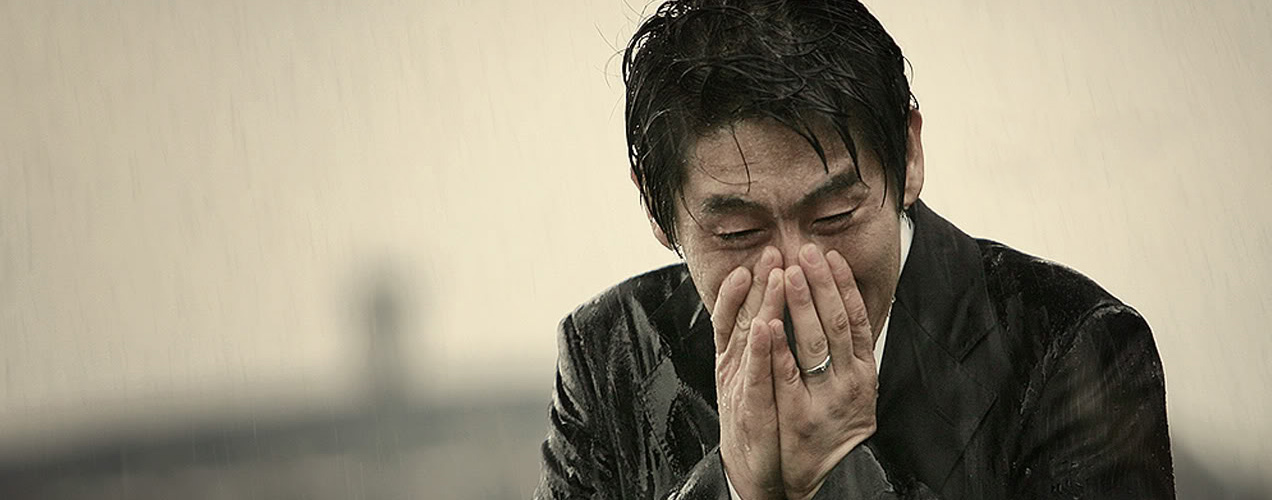2007 / Park Jin-pyo > It’s been quite a while since Korea’s had a film worth writing home about, but Park’s Voice of a Murderer seems to have passed that test with flying colors. Loosely based on the true story of the kidnapping of a popular anchorman’s young son, the film is filled with emotional tension that resonates from the absolute fear of helplessness. What can one do to save one’s child if nothing seems to be enough? Thrown amongst the somewhat exaggerated ineptitude of the police, the parents’ faith in their beliefs and themselves is questioned, leading to another powerful and memorable performance by my personal favorite Korean actor, Sol Kyung-gu. For Park, this is a less melodramatic follow-up to You Are My Sunshine, but one that shows his maturation with its grittiness and efficiency.
Category Archives: Korea
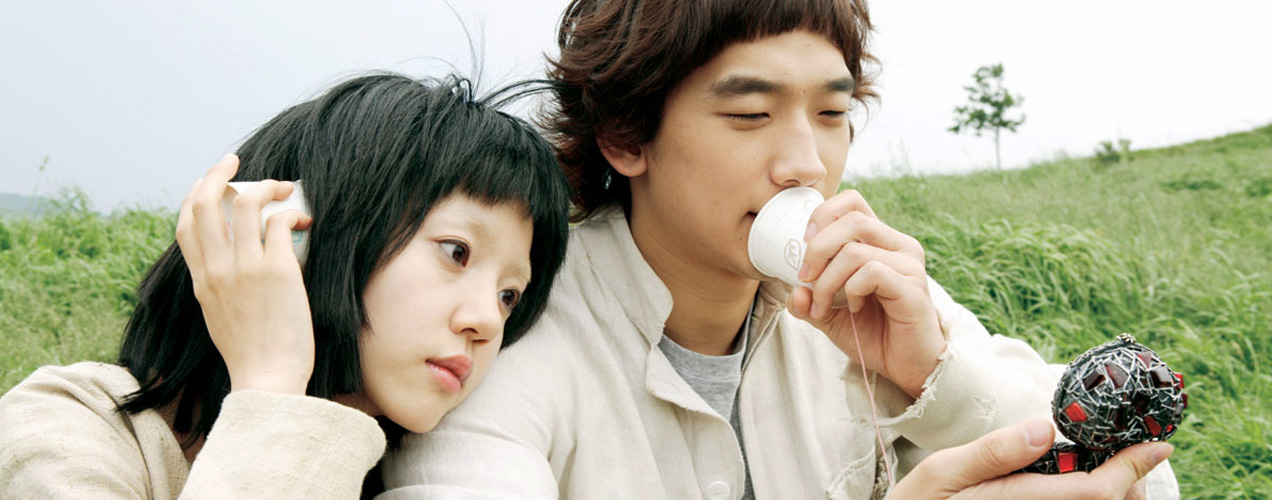
I’m a Cyborg, But That’s OK
 2006 / Park Chan-wook > It definitely has Park’s touch, biting off the color palette and quirkiness that pervades Jeunet’s films. But ultimately, it isn’t nearly as enjoyable as Oldboy or Sympathy for Lady Vengeance, and falls at the bottom of the feature film list in his catalogue. Nonetheless, it’s worth a watch to witness the director’s range (although his vignette in If You Were Me is far more impressing on that front), and moreover, a delight to see Im Su-jeong mature and Rain perform better than anyone would have expected from a singer-turned-actor.
2006 / Park Chan-wook > It definitely has Park’s touch, biting off the color palette and quirkiness that pervades Jeunet’s films. But ultimately, it isn’t nearly as enjoyable as Oldboy or Sympathy for Lady Vengeance, and falls at the bottom of the feature film list in his catalogue. Nonetheless, it’s worth a watch to witness the director’s range (although his vignette in If You Were Me is far more impressing on that front), and moreover, a delight to see Im Su-jeong mature and Rain perform better than anyone would have expected from a singer-turned-actor.
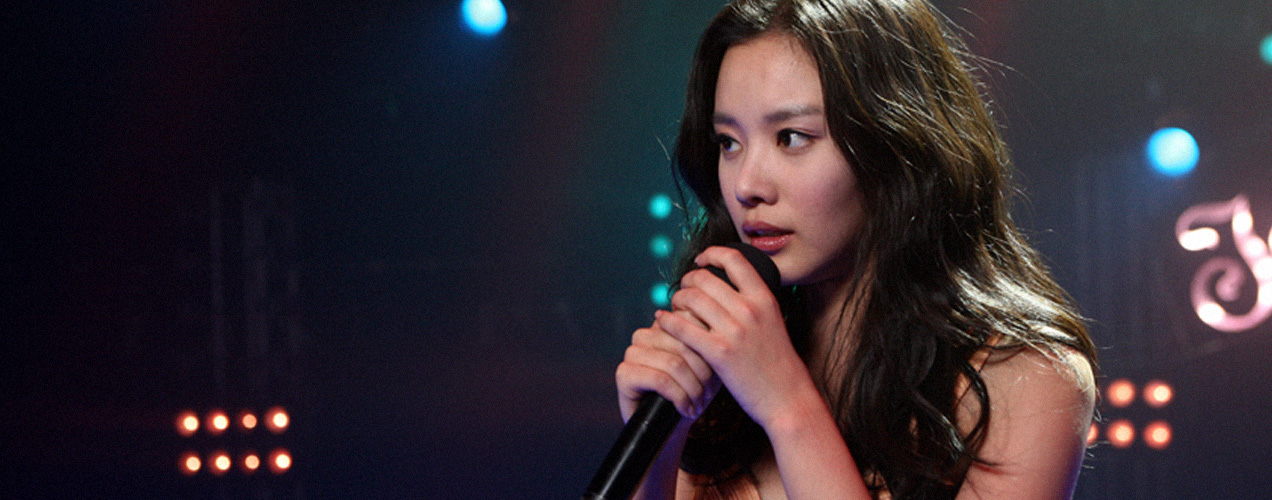
200 Pounds Beauty
2006 / Kim Yong-hwa > If you can ignore the horrible international title for the film, 200 Pounds Beauty is quite a bit easier to digest. Part social commentary on plastic surgery and part romantic comedy, its script tries to be a little more innovative than typical fair. But while it doesn’t completely succeed, it does have its share of moments that make you cheer. Kim Ah-joong, making her starring debut, is fresh, exciting and beautiful (although lacking the spunk that made her so memorable in When Romance Meets Destiny). Most impressively, she did her own vocals in the film even without any past experience. Ultimately, it’s a fun time, though I wouldn’t expect it to change anyone’s outlook on life.
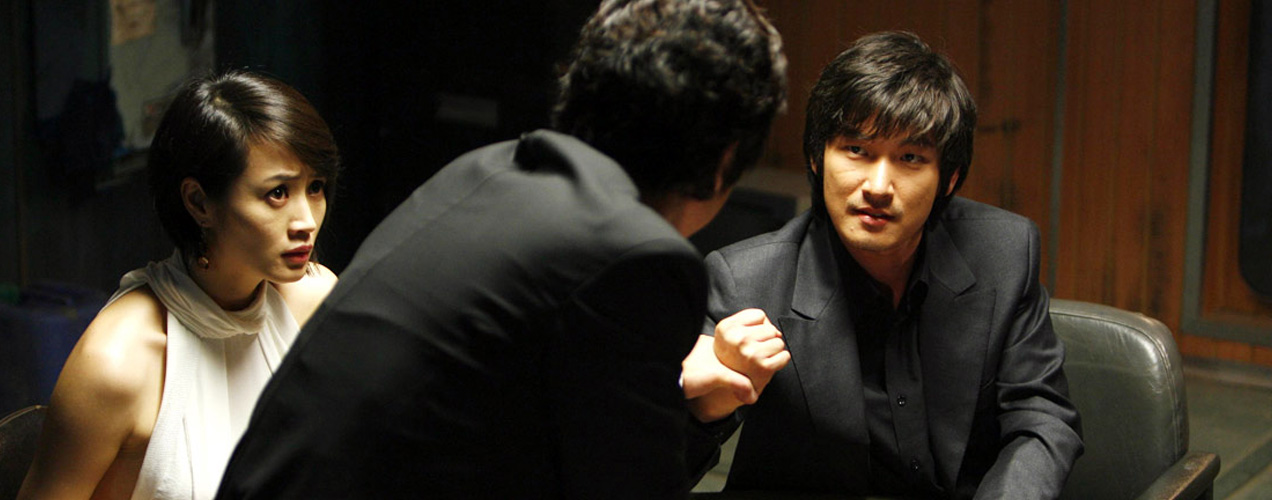
Tazza: The High Rollers
2006 / Choi Dong-hun > Korea’s second highest grossing film of 2006, Tazza comes fresh on the heels of Choi’s The Big Swindle, which while predictable for much of the Western audiences, provided a fresh caper story for an underserved Korean audience. (Although here, I would argue that the much ignored Jakarta was more entertaining, if less polished.) Tazza is based on a comic about high stakes professional gamblers who may as well be magicians, and Choi wastes no time in cutting the film into incongruent timelines with twists and turns at every corner. Similar to what Nolan did with The Prestige, there came a time in the film when I basically started expecting the unexpected, so the unexpected became predictable. At nearly 140 minutes, these twists go on a bit longer than they should, almost as if trying to validate the film’s seriousness, but that eventually becomes a little tenuous.
What keeps things going, as soon as you see her character Madame Jeong, is Kim Hye-soo’s spellbinding performance. Some have attributed the film’s success to her on-screen presence, and I imagine they may not be far off. At age 36, the curvaceous beauty continues to light up the cinema as if it were her playground, taking away the limelight from a more than credible performance from Cho Seung-woo. In the end, Tazza fails to add much new to the genre on a global perspective, but does fruitfully entertain those who remain patient.
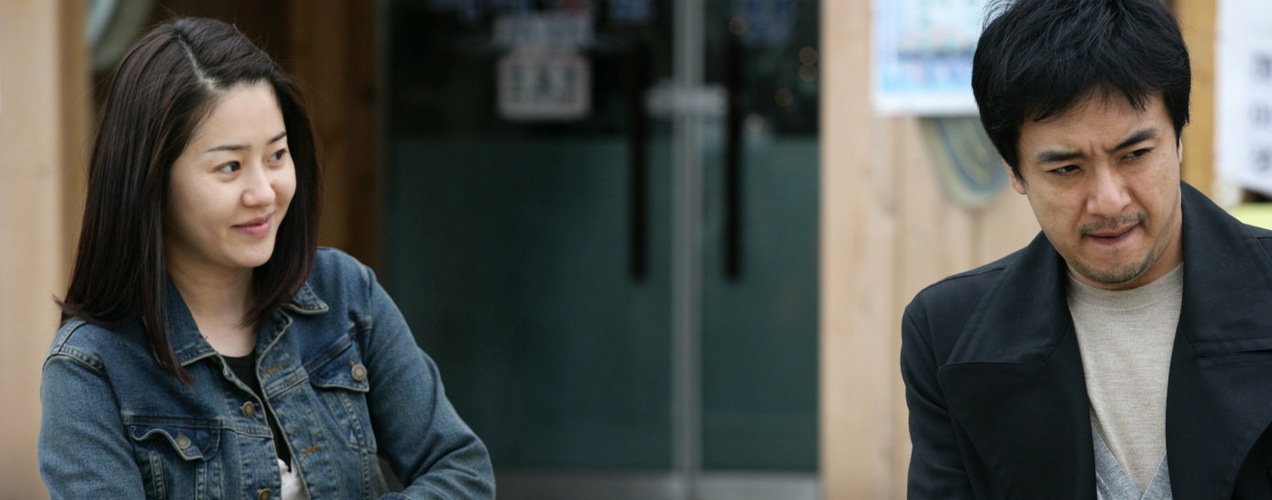
Woman on the Beach
2006 / Hong Sang-soo > Nobody doubts that the man has skill, but even for Hong, this was a bit of a stretch. It’s accessible, yes, but maybe too accessible. There’s no nudity (a common, almost uncomfortable thread in his previous works) and the story is surprisingly straightforward—as usual, though, there are many layers you can peel off if you wish, but this one didn’t motivate me nearly as much.
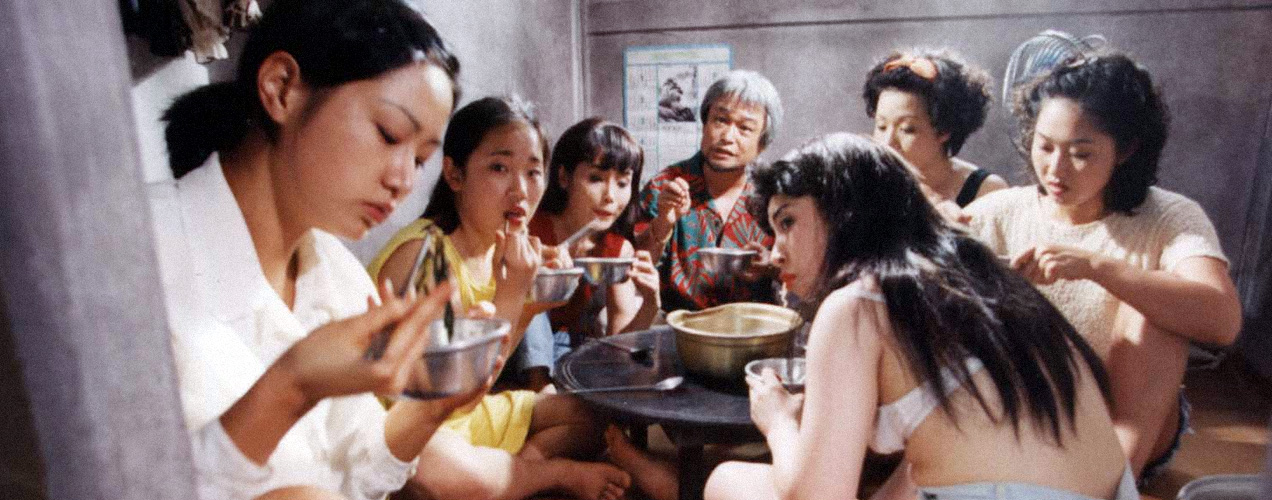
Downfall
1997 / Im Kwon-taek > This is not exactly the introduction I expected to Korea’s most prolific director, but I imagine it can only get better. Downfall (or Chang) holds an impressive showing by My Wife is a Gangster’s Shin Eun-kyung as a naive girl thrown into the world of prostitution at a young age. Piece by piece, we are shown the transformation of a society, an industry as well as a woman over time. Unlike typical films on the subject, Im utilizes his central character as a way to study Korean history, from the days of Park Chung-hee’s presidency to the Olympic Games in Seoul. However, Shin’s character’s journey slowly starts to feel too methodical, and we soon stop empathizing. Together with the fact that it’s hard to guess if this is meant to be a social commentary or simply a bystander’s view, the film fails to achieve the level of pathos needed to compliment its components.
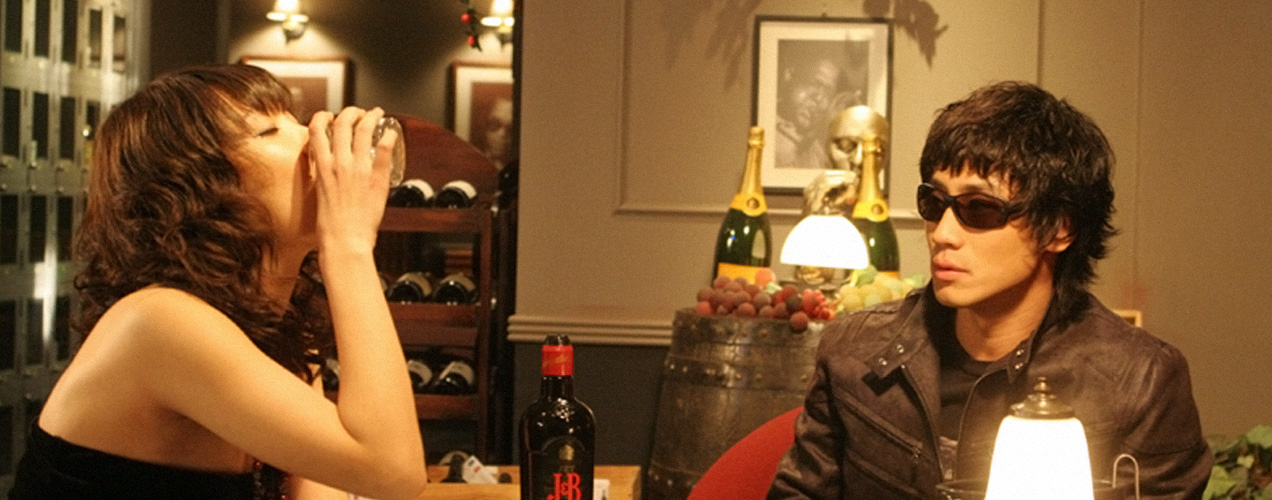
No Mercy for the Rude
2006 / Park Cheol-hie > Shin Ha-kyun once again takes the role of a deaf-mute (last seen in Sympathy for Mr. Vengeance), only this time he’s a contract killer earning money for himself. Under first-time director Park’s instruction, the story evolves as a black comedy while not sparing the blood. The action is swift and not the focus, which instead falls on the killer’s battle with a speech disability and a woman, played wonderfully by Yun Ji-hye, who somehow becomes a part of his life. Breaking genres, the plot development is a little slow but works effectively leading to an engrossing climax. No Mercy for the Rude is a fresh surprise in what’s been a fairly weak and underwhelming year for Korean cinema, and now that The Weinstein Company has picked up the North American distribution rights to the film, it should get the exposure it deserves.

Time
2006 / Kim Ki-duk > In what can arguably be called his safest work to date, Kim spews forth an uneven and somewhat marginalized social commentary on plastic surgery. Ironically, what seems to be the film’s strength is the underlying knowledge that Kim likes to surprise and taunt the viewer. Unfortunately, here he fails to meet the level of his previous successes. The characters are by nature weak, and their lack of proper judgment does little to motivate the viewer to care. By the end, the storyline remains shallow, the basic thesis remains overdone, and much of the rhetoric is too obvious for it to be impactful.
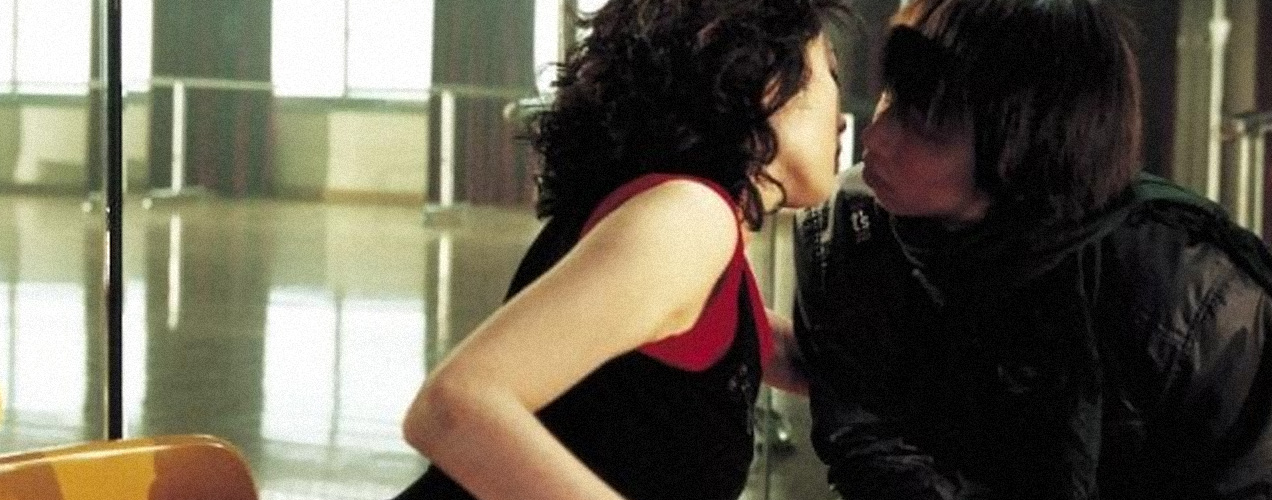
A Good Lawyer’s Wife
2003 / Im Sang-soo > There are so many layers to Im’s A Good Lawyer’s Wife that a minimum of two viewings are a must. But even on the first viewing, it’s fairly evident that he’s created a fine work exploring the status of the modern Korean family, analyzing issues with aging, infidelity, class distinction, adoption and love/loneliness. It’s easy to imagine a sophomore film class dissecting the ground beneath the film for a week, pondering exactly what Im intended to say, and what is just a natural consequence of the world he’s trying to represent.
Much of this, undoubtedly, is driven by the incredible cast. Of note, as always, is the sheer blistering performance, subtle and true, of Moon So-ri in her portrayal of the title character (for which she won Best Actress at the 2004 Grand Bell Awards). Moreover, I found the film to have some of the most successfully interesting use of music I’ve ever witnessed: A mixture of upbeat orchestration and mismatched visuals often bringing forth feelings that would generally be hidden away.
I could go on, but it’s probably better to just watch it. The combination of Im Sang-soo and Moon So-ri yields a result that ranks atop the ten best Korean films produced this decade, and establishes Im as a cornerstone director of contemporary Korean cinema.
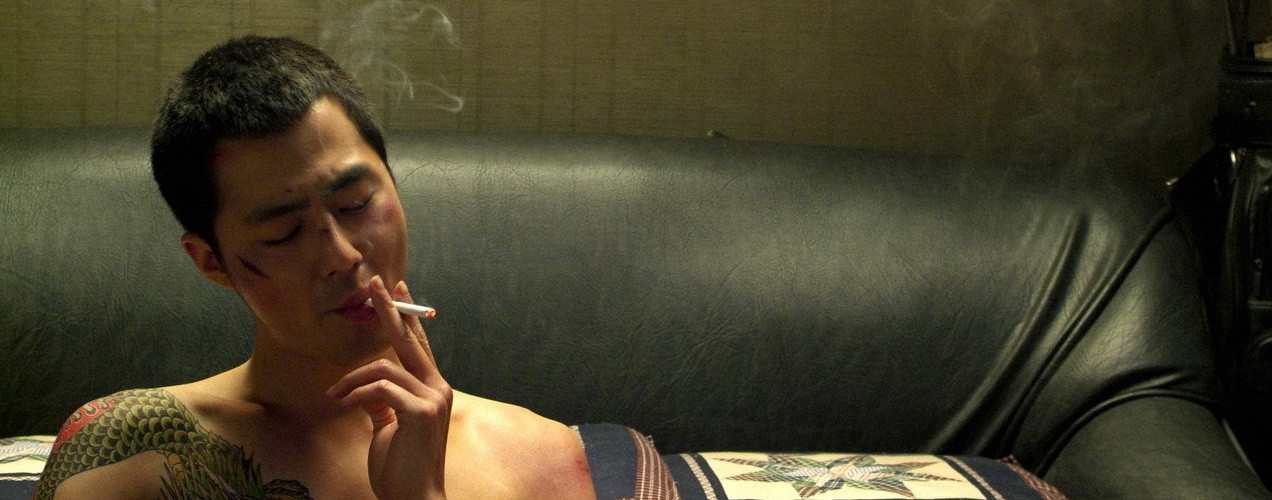
A Dirty Carnival
2006 / Yu Ha > Arguably a casualty of high expectations, Yu Ha’s follow up to Once Upon a Time in High School and Marriage is a Crazy Thing ultimately fails to deliver. The first half runs very much like a Scorsese-inspired gangster drama, unfolding with a mixture of monetary issues, family camaraderie and dealings within the hierarchy of a mafia-esquence organization. However, the primary underlying conflict that Yu develops as the film goes on feels a little silly. In progression, problems are created out of thin air even before existing problems are resolved. While succeeding in remaining poetic and refined, A Dirty Carnival is undoubtedly his weakest entry of the decade.

